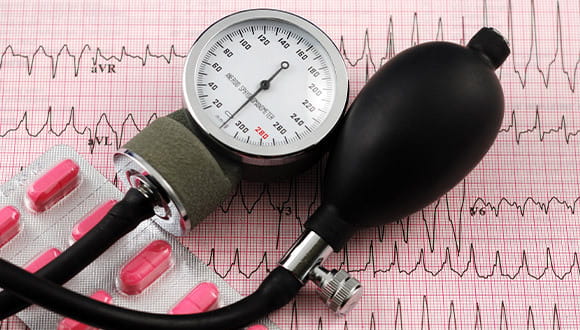What Do Beta Blockers Do? (& More Questions About This Medication, Answered)
Oct. 6, 2022 - Katie McCallumIf your doctor recommends you start taking a beta blocker, you probably have some questions. Starting with: What are beta blockers exactly?
"Beta blockers are a commonly prescribed class of medications used to treat a range of health conditions," says Dr. Danielle Tientcheu, a cardiologist at Houston Methodist. "They work by blocking the action of the stress hormone called epinephrine, also known as adrenaline."
Here are answers to some common questions about beta blockers.
What do beta blockers do?
"Generally speaking, beta blockers work by causing the heart to beat more slowly and with less force, as well as by relaxing the body's arteries," explains Dr. Tientcheu. "This lowers the oxygen demand of the heart and reduces blood pressure."
There are several different beta blockers that doctors prescribe, Dr. Tientcheu notes.
"Some work solely on the heart, while other beta blockers affect both the heart and other areas of the body," says Dr. Tientcheu.
If beta blockers are needed, your doctor will prescribe the appropriate one based on your health condition, the severity of your particular case and any personal health factors that may need to be considered.
Which health conditions can beta blockers help treat?
Beta blockers are used to treat both heart-related issues and non-heart related conditions, including:
- Coronary artery disease, the most common type of heart disease
- Arrhythmia (irregular heartbeat)
- Chest pain (angina)
- Congestive heart failure
- Essential tremors (involuntary and rhythmic shaking, most often in the hands)
- Migraines
"Beta blockers are also used to help treat high blood pressure, or hypertension, but they're not recommended as the first line of treatment for people who have high blood pressure only," Dr. Tientcheu notes.
She adds, though, that having both high blood pressure and another of the aforementioned conditions could warrant a beta blocker prescription.
Beta blockers are also considered when frontline blood pressure medications — diuretics, ACE inhibitors, angiotensin receptor blockers (ARBs) and calcium channel blockers — aren't helping enough or cannot be taken due to side effects.
Are there side effects to taking beta blockers?
Most people taking beta blockers have no side effects. However, as with any medication, side effects can occur.
Dr. Tientcheu says that the most common beta blocker side effects include:
- Fatigue
- Dizziness
- Cold hands and feet
The good news is that the side effects of beta blockers are often temporary, lingering for a week or two as the body adjusts to the medication.
"If they don't subside, the dose can be lowered or a different beta blocker can be used," says Dr. Tientcheu. "Occasionally, the fatigue can prevent people from being active. In those cases, we typically wean patients off the beta blocker and try something else."
Some people aren't good candidates for beta blockers, including people with:
- A low baseline heart rate or low blood pressure
- Uncontrolled asthma
"This is why it's important to work with your doctor(s) prior to taking a beta blocker," says Dr. Tientcheu.
Is it safe to stop taking beta blockers on your own?
Whether you're wondering how to discontinue beta blockers because of side effects or something else entirely, Dr. Tientcheu warns that it's critical to first consult your doctor.
"This is one of those medications that should not be stopped abruptly because it can lead to problems, some of which can be life-threatening," Dr. Tientcheu warns. "Tachycardia or palpitations, chest pain or rise in blood pressure can occur with abrupt discontinuation."


